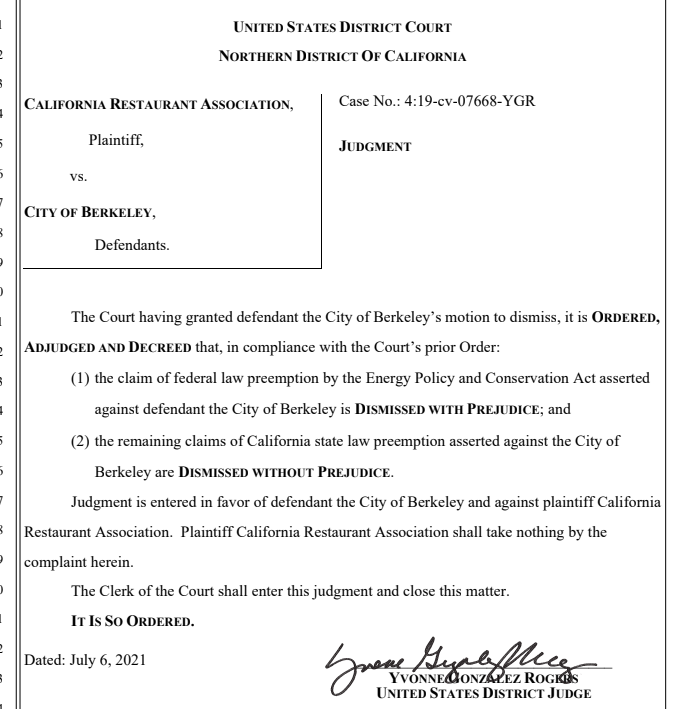By Maria Antonia Tigre
On September 20, 2021, the German environmental organization Deutsche Umwelthilfe (DUH) filed two actions against the automakers BMW and Mercedes-Benz for refusing to tighten their carbon emissions target and stop producing fossil fuel fuel-emitting cars by 2030 (DUH v. BMW and DUH v. Mercedes-Benz). The cases represent the first climate lawsuits against the auto industry outside the United States. DUH had previously sent BMW and Mercedes a cease and desist letter asking for a declaration that the companies would not bring any more fossil fuel emitting passenger cars and light commercial vehicles to the market starting in 2030. A similar letter was sent by Greenpeace to Volkswagen. Since the automakers refused to comply with their demands, DUH filed the lawsuits. Greenpeace gave Volkswagen additional time to comply; if Volkswagen also refuses, a similar lawsuit will follow.
DUH asks the automakers to stop producing individual combustion engine (ICE) cars by October 31, 2030, if they cannot prove carbon neutrality. For the period between January 1, 2022, and October 31, 2030, DUH asks automakers stop bringing new ICE cars onto the market if they cannot prove carbon neutrality for emissions exceeding the average real use of passenger cars. This would be based an average individual car mileage of 200,000 km. The requested ban on producing new fossil-fuel cars would be earlier than the 2035 effective ban proposed by the European Union in July 2021 as part of a broad package of measures to combat global warming. The significance of the case relies on the role of auto companies in the climate crisis. According to the plaintiff, BMW was responsible for 93.8 million tons of CO2 in 2019, representing more emissions than Austria or Greece. Mercedes-Benz emitted 118.5 million tons of CO2 in 2019, more than Venezuela, a country that heavily relies on fossil fuels.
The legal claim builds on Neubauer
DUH argues that the automakers are violating the fundamental right to climate protection and impinging on the rights and freedoms of future generations by not adhering to a “fair” carbon budget. The claim is grounded on the Paris Agreement and the German Climate Protection Act (KSG). DUH relies on an earlier decision by the Federal Constitutional Court in Neubauer v. Germany that struck down parts of the KSG for failing to set sufficient provisions for emissions cut beyond 2030. The Court noted that Germany has a limited total budget of CO2 emissions at its disposal, and DUH argues that this creates a responsibility for companies such as BMW and Mercedes to reduce their emissions. These are the first proceedings against German companies based on the groundbreaking Neubauer case.
The Court found in Neubauer that extensive depletion of the CO2 budget by 2030 violates fundamental rights. While the Court sided with the government regarding the constitutionality of the overall ambition of the climate plan, it declared that the climate plan’s insufficient detail and urgency violated young peoples’ and future generations’ fundamental rights. Germany is constitutionally obliged to contribute – commensurate with its share of global greenhouse gas emissions – to reducing greenhouse gas emissions and, ultimately, achieve carbon neutrality by 2045. The plaintiffs in DUH v. BMW and DUH v. Mercedes-Benz argue that the duty to respect the fundamental right to climate protection extends to corporations given their responsibility for CO2 emissions.
Holding private companies accountable for climate change
DUH v. BMW and DUH v. Mercedes-Benz follow a growing number of climate litigation cases directed at the private sector. Historically, cases have targeted companies with the highest historical emissions, the Carbon Majors, or challenged high emitting projects and developments, usually in the oil, gas, and cement industries. Yet cases are now arising against other sectors with a high carbon footprint, including the auto industry.
The ruling in Neubauer built on and expanded legal innovations introduced by litigants and courts since the mid-2010s on issues such as the impact of global warming on human rights, judicial review of governmental action on climate change, the rights of future generations, and the binding nature of governments’ international pledges on climate action.
Climate commitment cases such as Neubauer seek to challenge a lack of ambition or implementation of climate goals and center on commitments or targets. They cite to the emerging consensus on global temperature limits represented by 2018 Intergovernmental Panel on Climate Change (IPCC)’s Global Warming of 1.5oC report. These cases often build on the approach of Urgenda Foundation v. State of the Netherlands, the first to successfully challenge the adequacy of a national government’s approach to reducing emissions. The second wave of climate litigation, focused on holding private actors to account, emerges within a rapidly evolving scientific, discursive, and constitutional context. The judicial enforcement of corporate accountability for climate change, which had proven elusive in the past (see, e.g., Comer v. Murphy Oil and Kivalina v. ExxonMobil), is now showing significant promise through recent strategic private climate litigation initiatives that build on the successful climate commitment cases.
Milieudefensie v Shell built on the landmark decision in Urgenda, expanding the obligations defined to private companies for the first time (see commentary here). Milieudefensie brings a new understanding of corporate responsibility related to the risk of harm caused by their contribution to climate change and represents one of the first explicit judgments determining that the 1.5°C temperature limit should inform legal standards of conduct. The court ordered Shell to enhance the ambition of its greenhouse gas emissions reduction efforts, requiring the company to set company-wide targets of 45% below 2019 levels by 2030.
Milieudefensie plays a critical role in the domestic implementation and enforcement of the Paris Agreement by expanding the obligations defined to private companies. The BMW/Mercedes cases are modeled on Shell, widening the scope of defendants in climate litigation to include auto manufacturers in Germany. The requirement that companies have concrete and credible climate policies encompassing both the net-zero goal and value chain emissions is likely to be a key element of near-future private sector climate litigation.
Climate litigation against automakers: more cases likely to arise
The transportation sector is responsible for a significant portion of greenhouse gas emissions, the majority of which derive from passenger road vehicles. Road transport accounts for 17 percent of global greenhouse gas emissions, a major factor contributing to climate change. In the United States, the transportation sector is the leading source of greenhouse gas emissions, accounting for 29 percent of total emissions. Thus, reducing pollution from transportation represents one of the most critical steps to sustaining a livable climate. Initiatives to regulate greenhouse gas emissions from the auto industry are spreading worldwide. For example, the Biden administration is looking to reinstate national fuel-efficiency standards in the US, an initiative now supported by the car industry. But existing proposed cuts to transportation emissions may not be strong enough to meet climate targets.
In the absence of more stringent standards regulating greenhouse gas emissions from the transportation sector, plaintiffs may increasingly look to the courts. Moving beyond oil and gas companies, plaintiffs are seeking to hold transportation companies accountable, and could eventually target ports, planes, trains, buses, trucking companies, and makers of diesel engines. Automakers could be found negligent for breaching the applicable standard of care by continuing to sell fuel-emitting vehicles whose cumulative emissions create a reasonably foreseeable risk of harm due to their contributions to anthropogenic climate change. While a ruling on the DUH cases is not likely before 2022, the claim shows a significant development in global climate litigation.
Dr. Maria Antonia Tigre is the Director of Global Climate Litigation at the Sabin Center for Climate Change Law at Columbia Law School.




